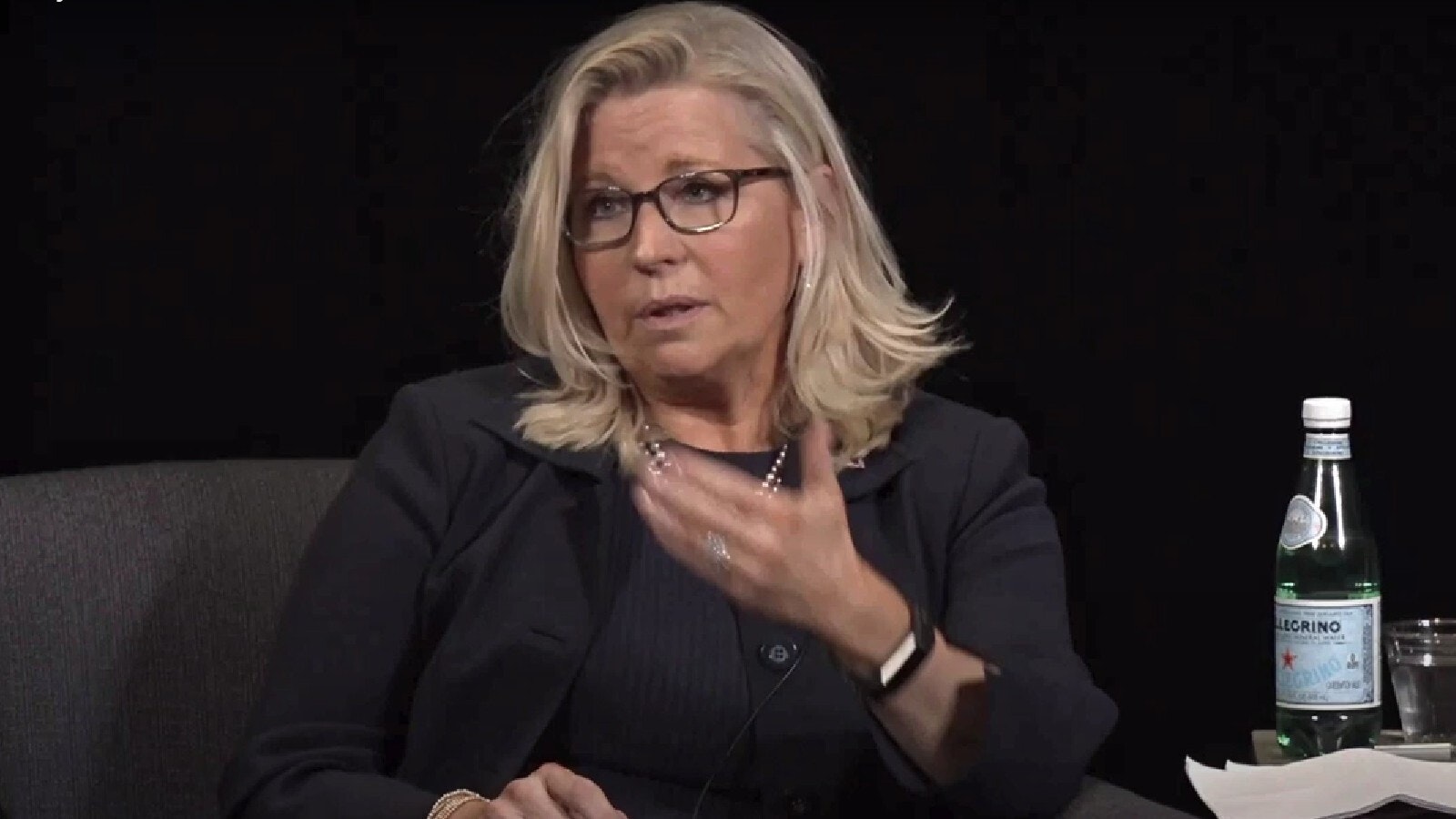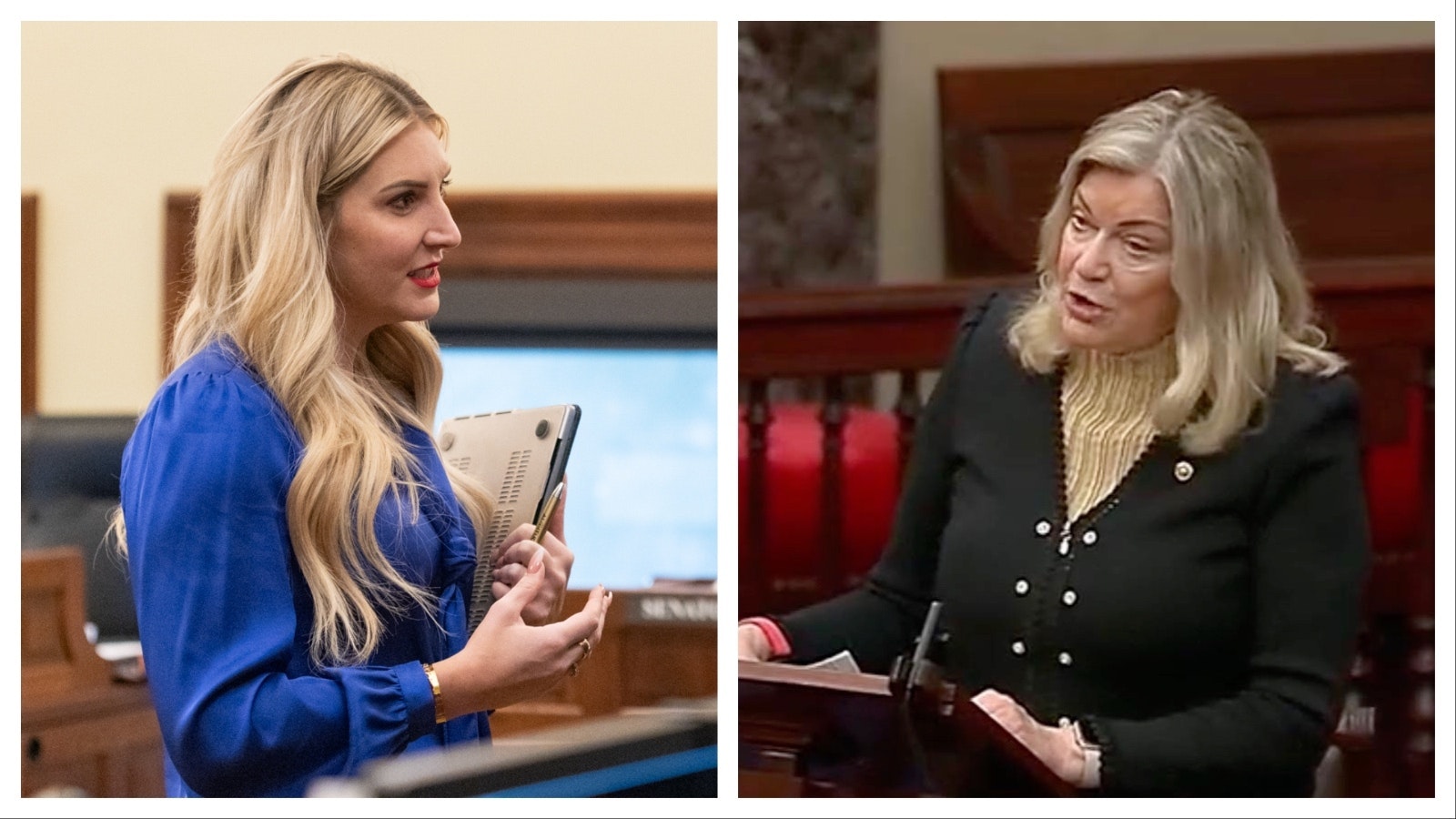U.S. Rep. Liz Cheney on Tuesday criticized her congressional colleagues who seem to be more interested in drawing attention to themselves than actually solving problems.
Cheney, speaking during a nonpolitical discussion on American elections in Jackson, blamed partisan fissures in Congress in part on politicians who make a spectacle of themselves.
“Performance politics is a huge problem, where members are going into these hearings because they know the video cameras are on C-SPAN,” she said. “They know the minute-and-a-half video clip that they want to get out of it that they can put over on Twitter, and then they can flame the other side.”
Civility was a major topic of conversation during the gathering on Tuesday that was attended by both Democrats and Republicans as well as supporters of Cheney and Harriet Hageman, one of her challengers in the GOP primary for Wyoming’s lone U.S. House seat.
One of the biggest issues encouraging performative politics, Cheney said, is that it is successful, at least financially. Members of Congress spend much of their time raising funds for re-election, and by making waves online, politicians can bring in more donations.
“You look at some of the political fundraising notes that go out these days, and they’re just horrible, stuff you would never ever say to a person’s face,” Cheney said. “But you’re saying it to hundreds of thousands of people as a member of Congress so that you can get them to open up their wallets and give you $25.
“This is the people who are playing the game, the people who are seeing how many ‘likes’ they can get on social media, the people who are fundraising off of the outrageous things they have said and done, those people get a lot of reinforcement,” she continued. “It has to be our job to give reinforcement to the other (members of Congress).”
There is an immense amount of pressure among both Democrats and Republicans to avoid working together in Congress, as they are always strategizing to get more people on their side of the aisle elected, Cheney said.
“People that you’re likely to work with are often the people on the other side of the aisle who are the most vulnerable members, they maybe represent swing districts and that’s why you might have some issues in common with them,” she said. “The leadership on both sides is telling the members, ‘Don’t work with those people. We want our guy re-elected or elected.’ So there are all sorts of incentives that pressure against working together.”
Cheney noted that partisanship and vitriol in Congress are not new in the United States. But she added she felt it is still important to encourage civility among Democrats and Republicans.
She also said that regardless of whether Democrat or Republican, elected officials should always think about how important it is to take the role seriously, since they are facing “grave issues.” She also urged voters to elect “serious people” to these positions.
“They have to be worthy of the responsibility and the obligation of governing in this republic, and they have to be up to the tasks and the challenges we face,” Cheney said. “So, when you’re casting your vote, when you’re thinking about who to vote for, one of the things that’s most important for us to do is to incentivize serious people. There are a lot of people, too many people, in Congress today on both sides of the aisle who are not serious, who don’t do their homework and who treat politics like it’s a game.”
Additionally, she said that as an elected official, she does not get to pick and choose what portions of the U.S. Constitution she likes and dislikes, and which she will defend and which she won’t.
“If I won’t defend the 12th Amendment, if I won’t defend that the plain meaning in the text of the 12th Amendment, then how can I defend the First Amendment? And how can I defend the Second Amendment?” she said. “The Constitution is our shield. And when you think about what it means, and the responsibility that we all have, I think it’s really important for us to recognize that we don’t get to have the debates about substance and about policy if we abandon the Constitution.”





